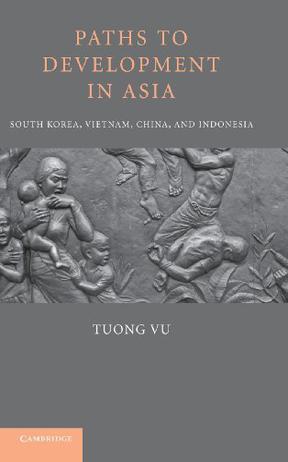-

Skeletons in the Closet
This book tackles three puzzles of pacted transitions to democracy. First, why do autocrats ever step down from power peacefully if they know that they may be held accountable for their involvement in the ancien régime? Second, when does the opposition indeed refrain from meting out punishment to the former autocrats once the transition is complete? Third, why, in some countries, does transitional justice get adopted when successors of former communists hold parliamentary majorities? Monika Nalepa argues that infiltration of the opposition with collaborators of the authoritarian regime can serve as insurance against transitional justice, making their commitments to amnesty credible. This explanation also accounts for the timing of transitional justice across East Central Europe. Nalepa supports her theory using a combination of elite interviews, archival evidence, and statistical analysis of survey experiments in Poland, Hungary, and the Czech Republic. -

Stalled Democracy
In this ambitious book Eva Bellin examines the dynamics of democratization in late-developing countries where the process has stalled. Bellin focuses on the pivotal role of social forces and particularly the reluctance of capital and labor to champion democratic transition, contrary to the expectations of political economists versed in earlier transitions. Bellin argues that the special conditions of late development, most notably the political paradoxes created by state sponsorship, fatally limit class commitment to democracy. In many developing countries, she contends, those who are empowered by capitalist industrialization become the allies of authoritarianism rather than the agents of democratic reform.Bellin generates her propositions from close study of a singular case of stalled democracy -- Tunisia. Capital and labor's complicity in authoritarian relapse in that country poses a puzzle. The author's explanation of that case is made more general through comparison with the cases of other countries, including Mexico, Indonesia, South Korea, Turkey, and Egypt. Stalled Democracy also explores the transformative capacity of state-sponsored industrialization. By drawing on a range of real-world examples, Bellin illustrates the ability of developing countries to reconfigure state-society relations, redistribute power more evenly in society, and erode the peremptory power of the authoritarian state, even where democracy is stalled. -

Authoritarianism in an Age of Democratization
-

The State against Society
Classical images of state-socialism developed in contemporary social sciences were founded on simple presuppositions. State-socialist regimes were considered to be politically stable due to their pervasive institutional and ideological control over the everyday lives of their citizens, impervious to reform and change, and representative of extreme political and economic dependency. Despite their contrasting historical experiences, they have been treated as basically identical in their institutional design, social and economic structures, and policies. Grzegorz Ekiert challenges this notion in a comparative analysis of the major political crises in post-1945 East Central Europe: Hungary (1956-63), Czechoslovakia (1968-76), and Poland (1980-89). The author maintains that the nature and consequences of these crises can better explain the distinctive experiences of East Central European countries under communist rule than can the formal characteristics of their political and economic systems or their politically dependent status. He explores how political crises reshaped party-state institutions, redefined relations between party and state institutions, altered the relationship between the state and various groups and organizations within society, and modified the political practices of these regimes. He shows how these events transformed cultural categories, produced collective memories, and imposed long-lasting constraints on mass political behavior and the policy choices of ruling elites. These crises shaped the political evolution of the region, produced important cross-national differences among state-socialist regimes, and contributed to the distinctive patterns of their collapse. -

The New Authoritarianism in Latin America
While one of the most important attempts to explain the rise of authoritarian regimes and their relationship to problems of economic development has been the "bureaucratic-authoritarian model," there has been growing dissatisfaction with various elements of this model. In light of this dissatisfaction, a group of leading economists, political scientists, and sociologists was brought together to assess the adequacy; of the model and suggest directions for its reformulation. This volume is the product of their discussions over a period of three years and represents an important advance in the critique and refinement of ideas about political development. Part One provides an overview of the issues of social science analysis raised by the recent emergence of authoritarianism in Latin America and contains chapters by David Collier and Fernando Henrique Cardoso. The chapters in Part Two address the problem of explaining the rise of bureaucratic authoritarianism and are written by Albert Hirschman, Jose Serra, Robert Kaufman, and Julio Coder. In Part Three Guillermo O'Donnell, James Kurth, and David Collier discuss the likely future patterns of change in bureaucratic authoritarianism, opportunities for extending the analysis to Europe, and priorities for future research. The book includes a glossary and an extensive bibliography. -

Paths to Development in Asia
Why have some states in the developing world been more successful at facilitating industrialization than others? Challenging theories that privilege industrial policy and colonial legacies, this book focuses on state structure and the politics of state formation, arguing that a cohesive state structure is as important to developmental success as effective industrial policy. Based on a comparison of six Asian cases, including both capitalist and socialist states with varying structural cohesion, Tuong Vu proves that it is state formation politics rather than colonial legacies that have had decisive and lasting impacts on the structures of emerging states. His cross-national comparison of South Korea, Vietnam, Republican and Maoist China, and Sukarno's and Suharto's Indonesia, which is augmented by in-depth analyses of state formation processes in Vietnam and Indonesia, is an important contribution to understanding the dynamics of state formation and economic development in Asia.